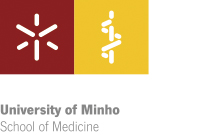Contemporary neuroscience relies on precise measurements of neural activity and behaviour obtained using sophisticated instruments controlled by computer programs. Commercial software packages are available for controlling behavioural and neural data acquisition but they are often
expensive, closed, inflexible and specialised in a data modality, requiring researchers to constantly patch together diverse pieces of software. Moreover, the experimental approaches used to acquire data in the first place are
complex and interdisciplinary, not to mention technically-challenging. Students and novel practitioners are therefore often overwhelmed, resorting to a"black box", "need-to-know" strategy when learning these techniques and procedures.
Our ultimate goal with the course
"Advanced Neurophysiology and Behavior: Empowering and Open Source Experimental Neuroscience" is to break down these barriers of understanding in two specific domains: the computerised
control of data acquisition and experimental protocols, and the
theory and practise of neurophysiology.
In one component of the course, we will provide training in basic concepts of the
Bonsai visual programming language, which can be used to develop
software for recording, controlling, analysing, and manipulating video, as well as behavioural and neural activity data. In the other, we will train students in the
theory and practise of neurophysiology, with special emphasis on
patch-clamp. Instead of equivalent circuit diagrams and other electronic engineering concepts, we will keep
real, biological neurons front and centre, focusing on
how these concepts apply to understanding neuronal and brain function.
This course concentrates top-level international expertise in a single hands-on program focused on applications to experimental systems neuroscience. The goal of the course is to empower students with the tools and skills to design and construct their own experimental instruments and setups, as well as to encourage a spirit of critical thinking, experimental boldness and theoretical de-mystification. This will enable participants to go back to their labs and immediately apply the acquired knowledge to design experiments that go beyond the available turn-key solutions.
This course does not provide credentials for the exercise of medicine for those without appropriate training, recognition and registered at the "Ordem dos Médicos".

